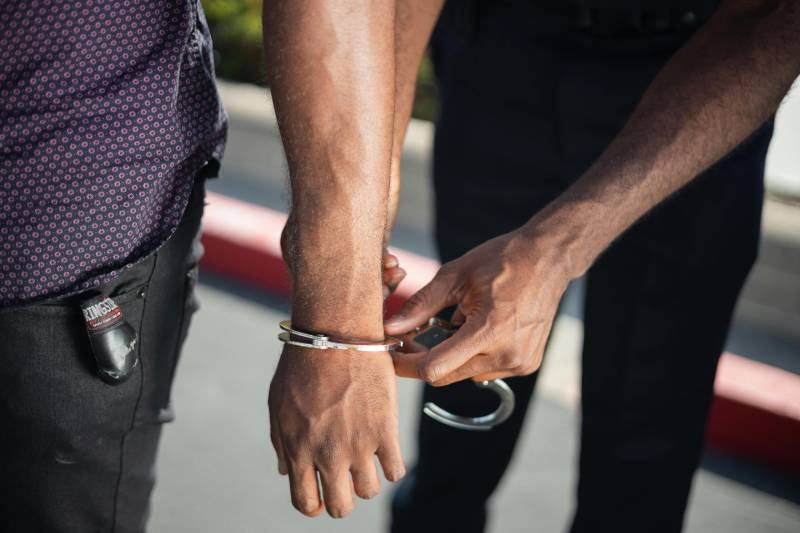Business
A Guide to Bail Bonds: Everything You Should Know

Navigating the legal system can be complex and daunting, especially when faced with the need for bail bonds. If you or your loved one ever finds yourself in a position where bail is necessary, you must have an extensive understanding of the process. This guide provides comprehensive insights into everything you should know about bail bonds, from the process of obtaining one to the responsibilities involved. By demystifying this aspect of the legal system, you’ll be better equipped to make informed decisions and take the necessary steps during challenging times.
Understanding Bail Bonds and Their Purpose
Bail bonds function as a monetary assurance to assure a defendant’s timely appearance in court. A person may be able to post bail after being arrested, which is a certain amount of money determined by the court. However, not everyone has the resources to pay the whole bail amount at once. In some situations, a bail bond issued by a bail bond agency can be used. The agent receives a non-refundable charge, which is often a percentage of the total bail amount, in return for committing to pay the whole bond cost in the event that the defendant fails to appear in court. Through the use of San Diego County bail bonds or those in other areas, individuals can secure their release from custody while awaiting trial.
Different Types of Bail Bonds
There are several kinds of bail bonds available, each designed to meet certain needs and legal specifications. The whole bail sum for cash bonds must be paid to the court upfront. If the defendant appears in court on all scheduled days, the money is restored at the conclusion of the case. Conversely, a surety bond company guarantees to cover the whole bail amount in the event that the accused fails to appear. Defendants can use real estate or other assets as security for their release when they post property bonds. A defendant is given a recognition bond if they agree to appear in court without having to pay anything.
The Bail Bond Process
Making contact with a reliable bail bond agency is usually the first step in the bail bond application procedure. After learning more about the defendant’s situation, the agent will determine how much danger is associated with posting the bail. Upon payment of the money, the defendant is freed from detention, awaiting trial after the agent posts the bail. You must adhere to all requirements imposed by the court, including showing up for all scheduled sessions. Failure to do so can result in the forfeiture of the bail bond and the issuance of a warrant for the defendant’s arrest. It is important to comprehend the bail bond procedure so that you are prepared for every turn the legal process takes.
Factors Influencing Bail Amounts
Several factors influence the amount of bail set by the court. These might include the seriousness of the alleged offense, the criminal history of the offender, their connections to the community, and the possibility that they would abscond before being put on trial. When setting bail, judges take these things into account in an effort to find a compromise between making sure the offender shows up for court and safeguarding public safety. Sometimes, bail amounts are set too high, which makes it hard for defendants to be released from custody. In these circumstances, bail bond brokers can help people by guiding them through the procedure and securing the money required for their release.
Consequences of Skipping Bail
After posting a bond, missing court dates could result in serious repercussions. It not only causes the bail bond to be forfeited, but it also causes an arrest warrant to be issued for the defendant. Skipping bail can also lead to further criminal accusations, such as bail jumping or non-appearance. There are severe consequences associated with these accusations, such as fines and jail time. There is also the possibility that the defendant’s reputation would suffer, which will make it more challenging for them to get bail in the future.
Finding a Reputable Bail Bond Agent
Locating a respectable and trustworthy bail bond agency is essential when obtaining a bail bond. Seek for agents with the necessary training and expertise to handle a variety of case types. They must be able to provide direction and assistance throughout the procedure and have familiarity with the legal system. Furthermore, consider reading testimonials and evaluations from prior customers, such as those on reliable websites. A trustworthy bail bond representative will put your interests first and make sure you are aware of your rights and obligations.
Conclusion
Navigating the bail bond process can be daunting, but with the right knowledge and support, it becomes more manageable. It is crucial for everyone facing legal procedures to comprehend the meaning of bail bonds, the many available kinds, and the repercussions of failing to post bail. Working with a trustworthy bail bond agency and meeting all legal requirements will enable you to be released from detention so you can concentrate on getting ready for your court appearance.
Bail bonds provide the effective and just administration of justice by giving people the opportunity to exercise their right to freedom while awaiting trial.
-

 Business3 weeks ago
Business3 weeks agoPrakash and Kamal Hinduja: Driving Social and Environmental Change
-
Education4 weeks ago
Fred DuVal: University Leadership as a Critical Resource for Climate Change Research and Life-Saving Solutions
-

 Cryptocurrency3 weeks ago
Cryptocurrency3 weeks agoDesigned For The Masses: How Akasha (AK1111) Is Unlocking Crypto For The Next Billion Users
-

 Health3 weeks ago
Health3 weeks agoThe Hinduja Brothers Commitment to Global Health: Empowering Communities Across Borders
-

 Cryptocurrency4 weeks ago
Cryptocurrency4 weeks agoNexaglobal & Future World Token (FWT): Could This Be the Next Big Crypto Investment of 2025?
-

 Startup2 weeks ago
Startup2 weeks agoCost-Saving Strategies Every Small Business Owner Should Know to Boost Efficiency
-

 Startup3 weeks ago
Startup3 weeks agoMatthew Denegre on the Art of Deal Sourcing: Finding the Right Investment Opportunities
-

 Health2 weeks ago
Health2 weeks agoSt. John’s Community Health Examines Innovations in Pharmacy Access













